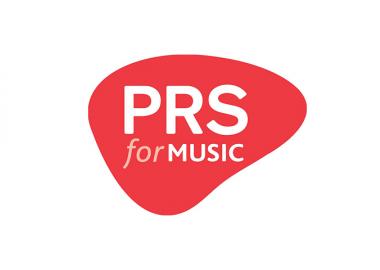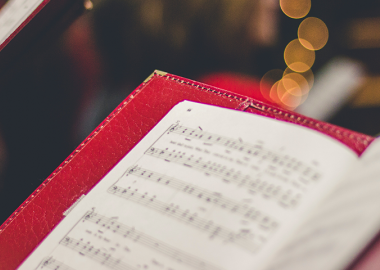Many choirs use sheet music as a tool to learn their repertoire, but needing to read sheet music is a barrier to many people looking to join a choir. This resource will help choirs support new and potential members learning to read sheet music.
Written music is a symbolic language that provides a lot of information in a small space, but this can make it confusing if you haven’t come across it before. However, it is a skill that can be learnt, especially with the encouragement and structure of a music group.
This resource refers to the notation used for western classical music. This is the most common notation used in the UK but there are other systems used throughout the world.
How to use this resource as a learner
There are a few key things to be aware of so that you can read sheet music in a choir. Like learning any skill, it will take time to feel confident with reading music. Taking part in rehearsals with a choir will help you to understand how the written music connects to what you hear, and how members of a choir work together when singing.
Use this guide and take a look at the resources below to learn more.
If you want a quick crash course...
'Getting started with sheet music' is a short guide created by Music Director Derek Harrison in collaboration with Making Music, and it is available as a webpage or as a printer-friendly PDF download. It covers key topics such as navigating the score and how to follow the pitch and rhythm of the music.
If you want to learn more about the culture of being in a choir…
Welcome to Choral Singing, by Derek Harrison
This short book contains lots of information, not only about how to read sheet music, but also about what to expect in choir rehearsals and tips for becoming part of the performing team. From information about following a score, to what to expect from the conductor, and advice on how to practise, Derek’s book is a great introduction to the world of choral singing.
Available from Lindsay Music
If you want an app to practise reading music and singing…
There are several apps available to help you learn how to read music.
A particularly useful app is EarMaster, which has lots of exercises to help you learn to read music, identify intervals by ear, and practise singing in tune. If you are subscribed to EarMaster, you can download and use this workbook file in the app in conjunction with our 'Getting started with sheet music' resource as a follow-up learning tool.
Earmaster are a Making Music Corporate Member, and offer a 10% discount on subscription for individuals in a Making Music member group.
If you want to dive deeper into music theory…
ABRSM have a range of resources available for learning music theory, including:
If you want to practise music specific to your choir…
Listen to recordings of the pieces you are learning to get to know them. Many pieces also have 'learning tracks' available, where you hear your part more loudly than the rest. The recordings of the soprano and bass parts linked in our 'Getting started with sheet music' resource are examples of these. As you play them you can listen to the music, follow the score, and sing with it on your own. Your choir may share these with you, and if not many are available for free online.
Try searching for 'composer – title of piece – voice part – learning track' in a search engine. Results from YouTube can be particularly useful as they often have videos that will follow along with the score too.
Also, get to know your fellow choir members! Ask around if anyone has any recommendations and don’t be afraid to ask the people next to you if you don’t understand something. If there are a group of new members starting at the same time, you could form a learning group and meet outside of rehearsals to share your learning journey.
How to use this resource as a choir or choir leader
If your choir uses sheet music you can use our 'Getting started with sheet music' document as part of your welcome pack to new people – especially those that don’t read sheet music already. As well as being a useful guide, it will show that your group is a safe space for them as a learner.
The resource is available online, or as a printable PDF. You can print this out to hand to new members or share the link with them. You could even link to it on your website to show that you’re open to, and able to support, people who don’t read sheet music yet.
If you have several members that are learning to read sheet music, you could consider doing more within your choir, such as:
- holding sessions before the main rehearsal to support small groups of learners,
- buddying up new learners with confident members of the choir,
- organising a group to work through a theory app or exam together,
- adding short educational snippets to your members’ newsletter or website.
There are many things that happen in your rehearsals that will be new to someone who has never experienced singing in a choir before. You may need to explain the musical conventions of western classical music, including the role of the conductor and how they lead and support the choir. Consider the less obvious social conventions that your choir members follow too – these could be confusing or even challenging for a new singer. For example, you might need to explain why you want them to sit in a certain place or what to expect from the choir and audience during a performance.
Every new member will have a different level of knowledge and experience of singing in choirs. Take the time to get to know them and what they need so that they can feel welcome.
Other resources
Take a look at these other resources to see what else you can do to welcome new people into your group, and prepare for other support needs they may have:
For committees:
- Creating an accessible and inclusive group
- Welcoming new people by building diversity and inclusion
- Removing barriers to participation
For music directors:
- Welcome to Choral Singing – Derek Harrison (useful for learners and conductors)
- The Association of British Choral Directors (ABCD) provides professional guidance for musical directors. They run a programme of events and have resources to support choir leaders in their work.
This resource was created as part of our INCLUDE programme, funded by Arts Council England from 2023-2025. Read more about Making Music: INCLUDE
We hope you find this Making Music resource useful. If you have any comments or suggestions about the guidance please contact us. Whilst every effort is made to ensure that the content of this guidance is accurate and up to date, Making Music do not warrant, nor accept any liability or responsibility for the completeness or accuracy of the content, or for any loss which may arise from reliance on the information contained in it.










